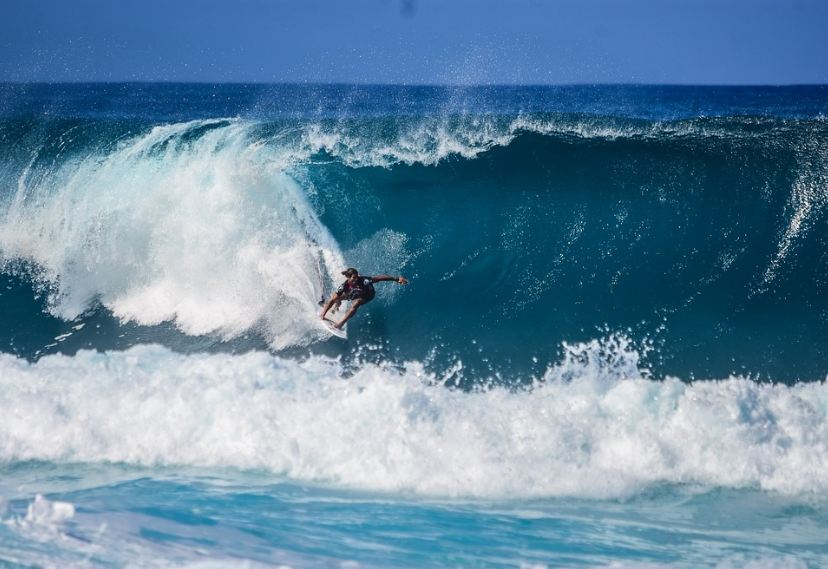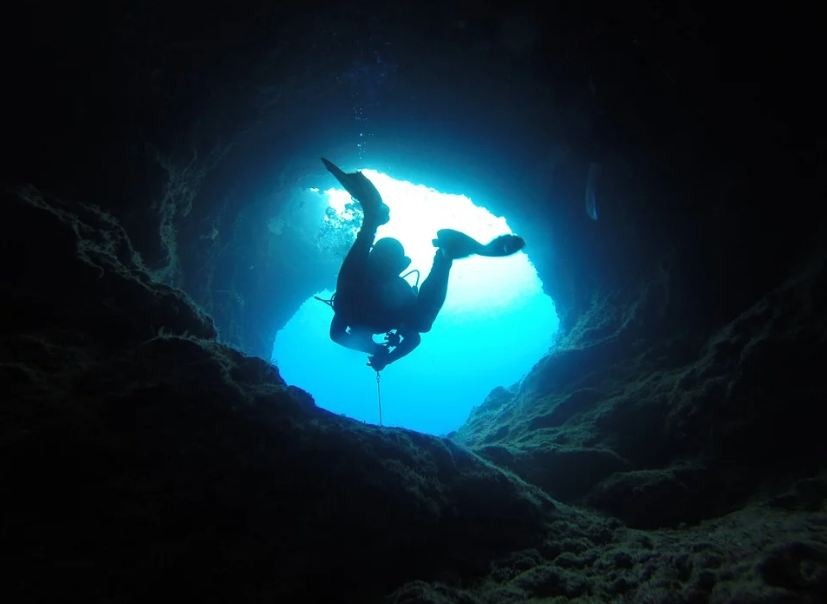What Are the Benefits of Wild Water Swimming?
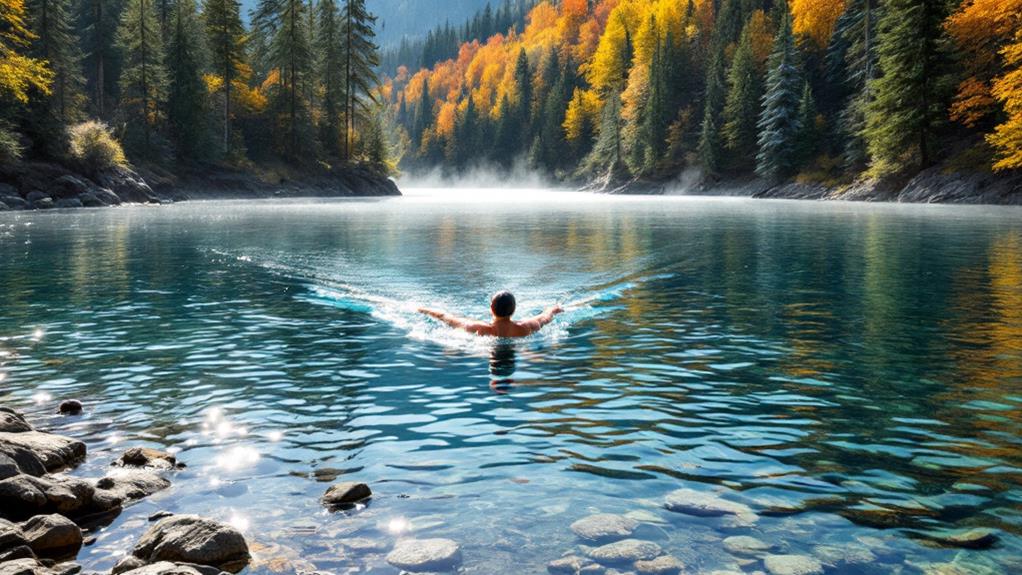
Wild water swimming offers a wealth of benefits for your body and mind. You'll experience improved cardiovascular health, enhanced immune function, and increased calorie burn. The cold water boosts your mood by releasing endorphins and reduces inflammation. You'll connect deeply with nature, reducing stress and anxiety while fostering environmental stewardship. It's a great way to meet like-minded people and form lasting friendships. You'll develop adventurous skills, mental resilience, and problem-solving abilities. The practice enhances your overall swimming technique and efficiency in open waters. Discover how this invigorating activity can transform your physical and mental well-being in unexpected ways.
Physical Health Improvements
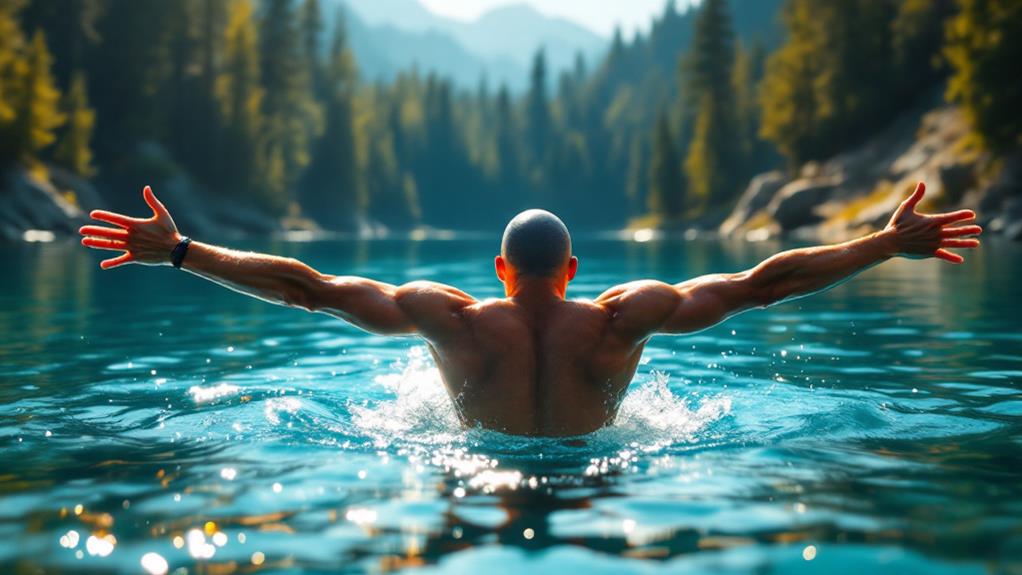
Wild water swimming's physical benefits are numerous and impressive. You'll experience improved cardiovascular health as your heart works harder to pump blood and keep you warm in cold water. This activity strengthens your heart muscle and enhances circulation throughout your body. Racing hovercrafts can be specialized for water-based events or versatile for both water and land racing, which similarly challenges the body in different environments. You'll also boost your immune system. Regular exposure to cold water can increase the production of white blood cells, helping you fight off infections more effectively. Additionally, you'll burn more calories compared to swimming in heated pools, as your body expends extra energy to maintain its core temperature.
Wild water swimming can also improve your skin health. The cold water stimulates blood flow to the skin's surface, promoting a healthy glow and potentially reducing inflammation. You might even find relief from muscle soreness and joint pain, as the cold water acts as a natural anti-inflammatory. Durable construction able to withstand impacts and maintain functionality on water and land is crucial for hovercraft racing, and similar qualities may benefit wild water swimmers. Moreover, you'll enhance your overall fitness and endurance. The challenging conditions of open water swimming engage more muscle groups and require greater effort, leading to improved strength and stamina. You'll also develop better breath control and lung capacity as you adapt to swimming in natural environments.
Mental Wellbeing Boost
Beyond its physical benefits, wild water swimming offers a remarkable boost to mental wellbeing. When you immerse yourself in natural waters, you'll experience a profound sense of connection with nature that can significantly reduce stress and anxiety. The cold water shock triggers the release of endorphins, your body's natural mood elevators, leaving you feeling invigorated and euphoric. Scuba diving is an exercise that strengthens health and lowers blood pressure, providing a similar sense of mental rejuvenation.
Wild water swimming also provides a unique form of mindfulness. As you focus on your breathing and the sensations of the water, you'll find yourself fully present in the moment, free from the worries of daily life. This meditative state can improve your overall mental clarity and emotional resilience.
Imagine yourself:
- Gliding through crystal-clear mountain lakes, surrounded by towering peaks
- Floating in a tranquil river, watching the sun's rays dance on the water's surface
- Conquering powerful ocean waves, feeling a surge of accomplishment
The sense of achievement you'll gain from wild water swimming can boost your self-esteem and confidence. You'll discover inner strength you never knew you had, empowering you to face life's challenges with renewed vigor and optimism.
Connection With Nature
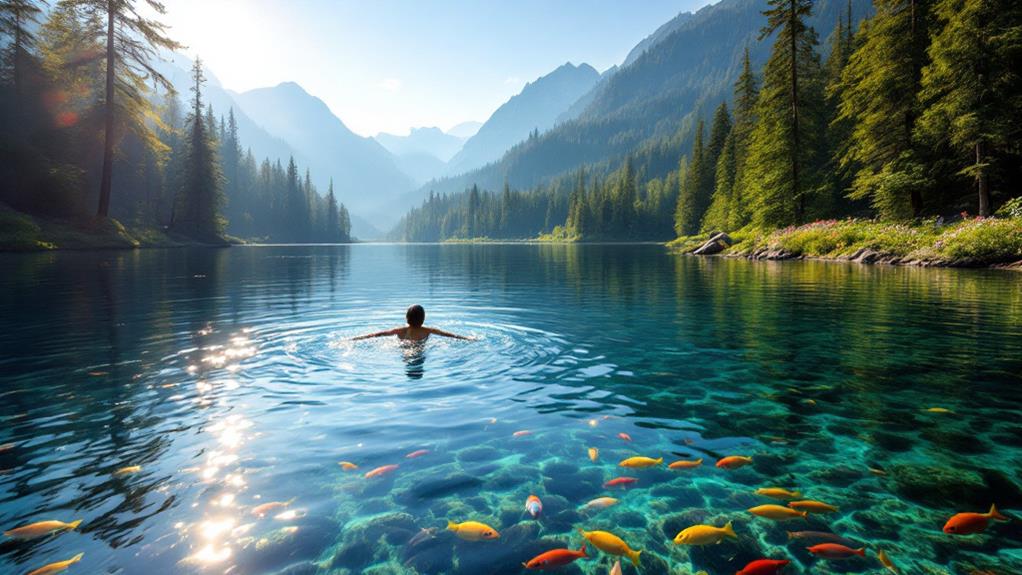
Three key aspects make wild water swimming an unparalleled way to connect with nature. First, you're immersing yourself directly in the environment, feeling the temperature, currents, and textures of the water around you. This sensory experience heightens your awareness of the natural world and your place within it.
Second, wild swimming often takes you to remote, unspoiled locations. You'll encounter pristine beaches, hidden coves, and secluded lakes that you might never have discovered otherwise. These settings offer a chance to observe wildlife in its natural habitat, from fish darting beneath the surface to birds soaring overhead.
Lastly, wild swimming forces you to adapt to nature's rhythms. You'll learn to read water conditions, understand tides, and respect the power of natural forces. This knowledge fosters a deep appreciation for the environment and encourages responsible stewardship.
Social Bonding Opportunities
Swimming in natural waters frequently offers unique social bonding opportunities. When you engage in wild water swimming, you're likely to meet like-minded individuals who share your passion for adventure and the outdoors. These encounters can lead to lasting friendships and a sense of community. You'll find yourself bonding over shared experiences, challenges, and the thrill of conquering nature's aquatic playgrounds.
Wild water swimming groups and clubs are becoming increasingly popular, providing a platform for regular meetups and organized events. By joining these communities, you'll expand your social circle and gain access to valuable local knowledge about the best swimming spots and safety practices.
The shared experience of wild water swimming can create strong bonds:
- Huddling together for warmth after a chilly dip
- Celebrating personal achievements, like conquering a challenging swim
- Sharing stories and laughter around a campfire post-swim
These social connections extend beyond the water, often leading to other outdoor activities and adventures. You'll find that the friendships formed through wild water swimming can enrich your life, providing support, encouragement, and a sense of belonging in a community of nature enthusiasts.
Cold Water Therapy Benefits

Cold water therapy, a key aspect of wild water swimming, offers numerous health benefits. When you immerse yourself in cold water, your body triggers a cascade of physiological responses that can improve your overall health and well-being.
First, cold water exposure boosts your immune system by increasing the production of white blood cells. This can help you fight off infections and illnesses more effectively. It also stimulates your circulation, pushing blood to your vital organs and enhancing cardiovascular health.
You'll experience a natural high after cold water swimming due to the release of endorphins, which can improve your mood and reduce stress levels. Regular cold water immersion may even help alleviate symptoms of depression and anxiety.
Cold water therapy can also aid in recovery from physical exercise by reducing inflammation and muscle soreness. It's been shown to increase metabolism, potentially assisting with weight management efforts.
Additionally, cold water swimming can improve your skin and hair health by tightening pores and increasing blood flow to the scalp. You may even find that you sleep better after a cold water swim, as it can help regulate your body temperature and promote deeper, more restful sleep.
Adventurous Skill Development
Adventurers at heart will find wild water swimming an exhilarating way to develop a range of skills. As you dive into natural bodies of water, you'll hone your ability to read currents, navigate obstacles, and adapt to changing conditions. This dynamic environment challenges you to become a more versatile and confident swimmer.
You'll learn to:
- Assess water safety quickly, identifying potential hazards like submerged rocks or strong undercurrents
- Plan routes effectively, considering entry and exit points, water temperature, and weather conditions
- Develop mental resilience, pushing through discomfort and overcoming fears
Wild water swimming also sharpens your decision-making skills. You'll need to make quick judgments about when to push forward and when to turn back. This heightened awareness translates to other areas of your life, making you more decisive and self-reliant.
As you progress, you'll gain expertise in open water techniques, improving your stamina and efficiency. You'll learn to conserve energy, breathe effectively in choppy waters, and maintain your bearings in unfamiliar surroundings. These skills not only enhance your swimming abilities but also boost your overall confidence and problem-solving capabilities.


